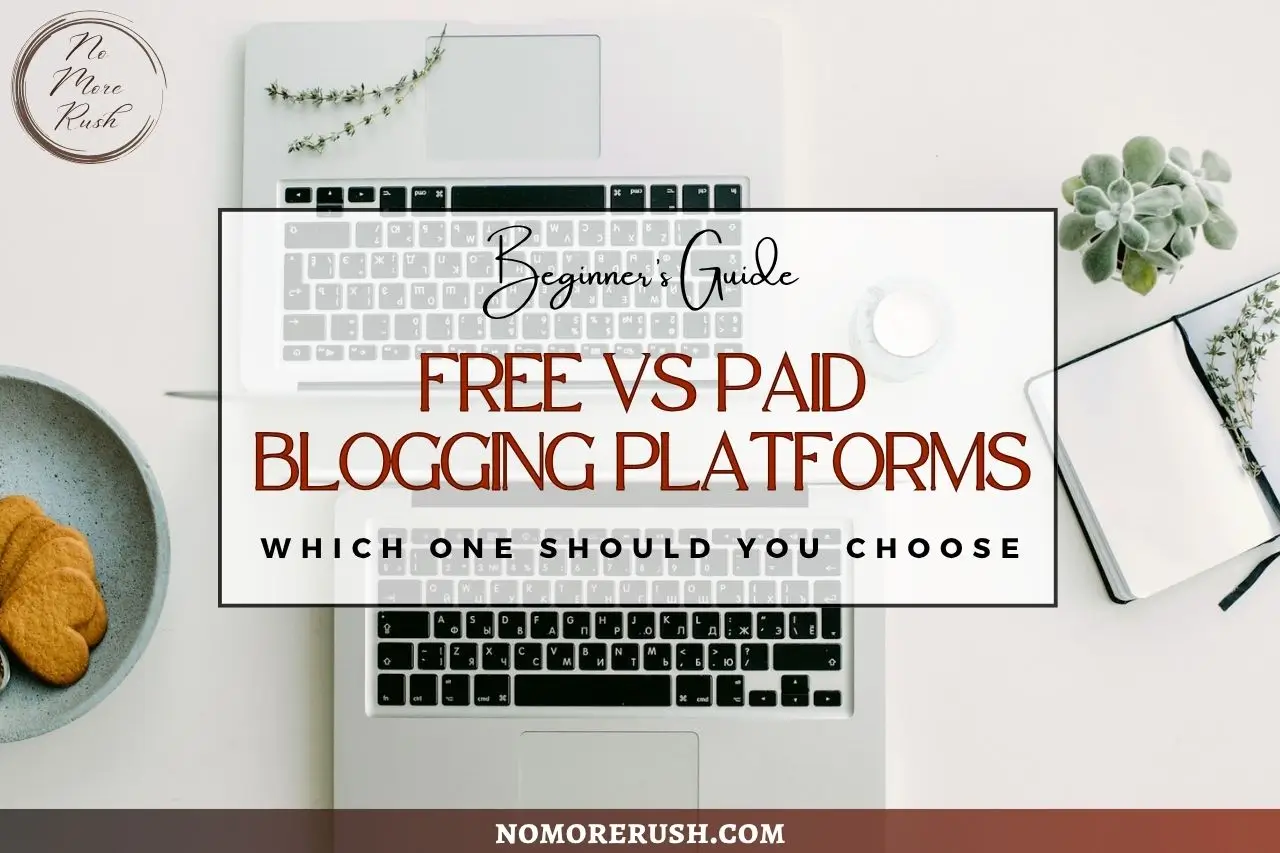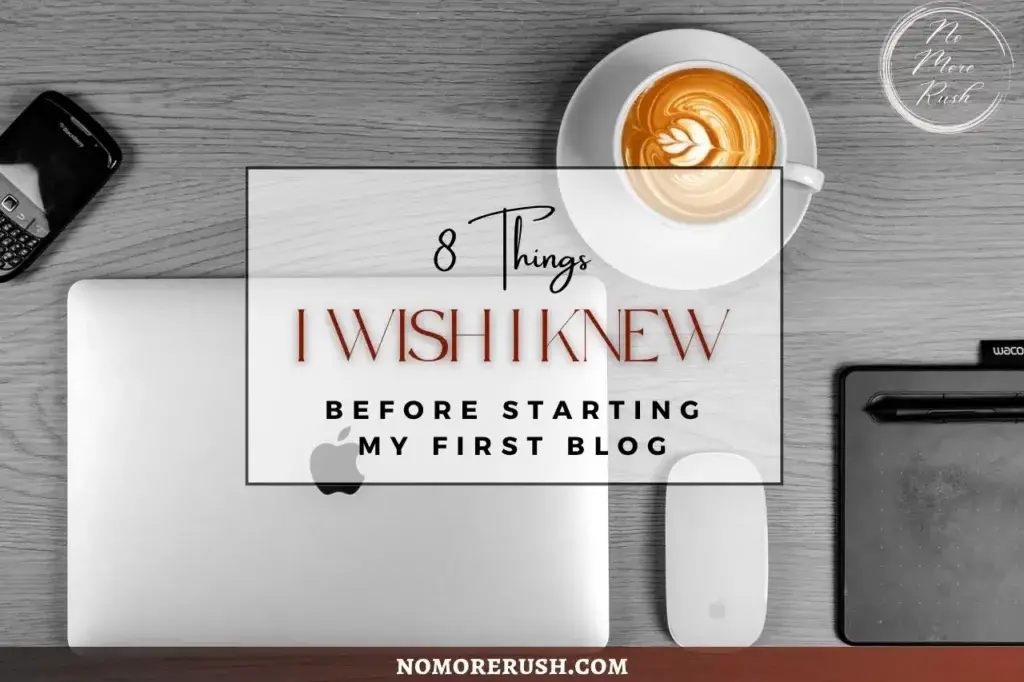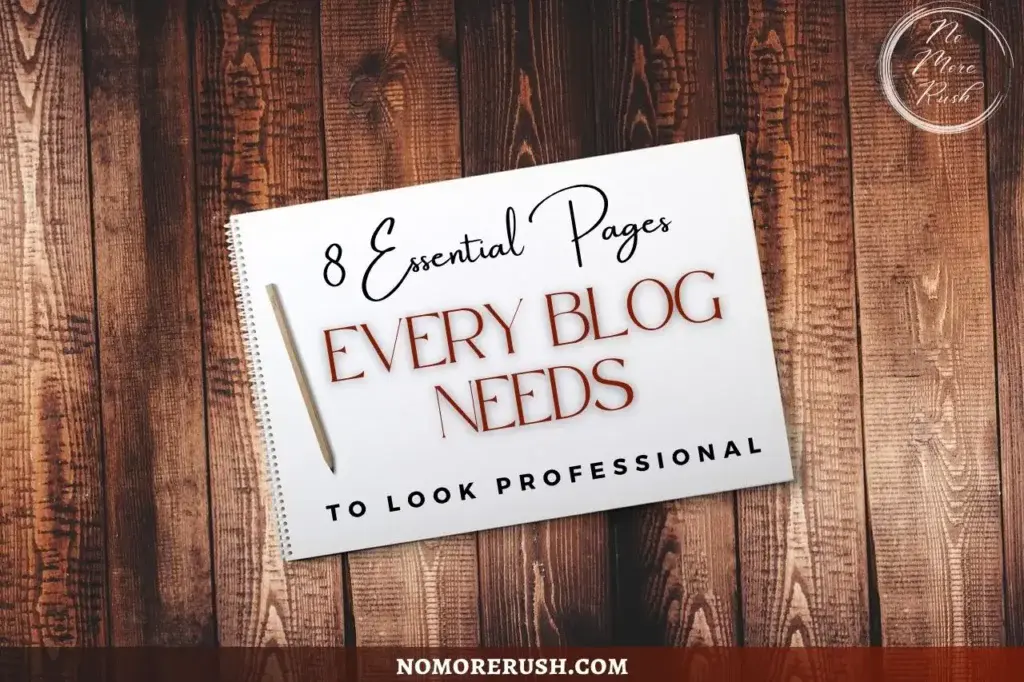So, you’re ready to start a blog, but before you can dive into writing posts or designing your homepage, there’s one major decision you need to make: Free vs paid blogging platforms, which one are you going to use?
This choice might seem small, especially when you’re just getting started, but it can have a big impact on your blog’s future. It can affect how it looks, how much control you have, and whether or not you can turn it into an income stream.
In this post, I’ll break down the pros and cons of free vs paid blogging platforms, highlight the major differences between them, and help you figure out which one is the best fit for your blogging goals, whether you’re just testing the waters or planning to build an online business from day one.
Let’s take the confusion out of blogging platforms so you can move forward with confidence.
What Is a Blogging Platform?
A blogging platform is the software or service you use to publish content online. It’s where you’ll write, edit, and manage your blog posts, and it also determines how your blog looks, how customisable it is, and what kind of features you can access.
There are two main types of blogging platforms that you can use, and they are:
- Free platforms, like WordPress.com, Blogger, or Wix (free version), which offer a quick and easy way to start a blog without spending any money.
- Paid platforms, like self-hosted WordPress.org, Squarespace, or Showit, which offer more features, control, and potential for growth but usually come with a price tag.
Choosing the right one depends on what kind of blog you want to create and how serious you are about blogging long-term. There are plenty of good blogging platforms for beginners, so let’s take a closer look at each type, starting with free options.
Free Blogging Platforms
Free blogging platforms are popular among beginners because they offer a low-risk way to get started in the blogging world. You can sign up and publish your first post in minutes with no upfront cost and no technical setup required. Popular Free Platforms include:
- WordPress.com
- Blogger
- Wix (free version)
- Medium
- Weebly
Depending on what you want to do with your blog, free blogging platforms can be a great way to get you started, especially if you’re a complete newbie. And there are several reasons why beginners choose them.
Pros:
- Completely free to start – Perfect for beginners who want to test the waters.
- Easy to use – Drag-and-drop editors and pre-made themes.
- No need for hosting – The platform hosts your site for you.
- Built-in community or traffic sources (like Medium or WordPress.com).
On the other side of the coin, they may not be suitable for those who are looking to build a professional blog with income potential.
Cons:
- Limited customisation – You’re stuck with basic themes and fewer design options.
- No custom domain – Your blog URL will include the platform’s name (e.g., myawesomeblog.wordpress.com instead of myawesomeblog.com).
- Lack of control – The platform owns your content and can limit monetisation or even shut your blog down.
- Harder to monetise – Ads, affiliate links, or ecommerce features are often restricted or completely unavailable. And the platform itself can run ads on your site which they make money from.
- Less professional – May give the impression that your blog is a hobby, not a business.
Free platforms are great for casual bloggers or hobbyists, or anyone looking to dip their toes in the blogging pond without any financial commitment, but they come with limitations if you want to grow, brand, or monetise your blog.

They are, however, great for practice, especially if funds are an issue and you want to start a blog for free. Just be aware that if you want to grow it into a monetised business, you’ll need to consider upgrading to a paid platform.
Paid Blogging Platforms (Self-Hosted)
Paid blogging platforms are the way to go if you’re looking for greater control, flexibility, and the potential for growth, especially if you’re building a blog with long-term goals like monetisation, branding, or turning it into an online business. Common Paid Platforms Include:
- Self-hosted WordPress (WordPress.org)
- Squarespace
- Wix (paid version)
- Showit
- Ghost (paid plans)
The most popular and flexible option by far is self-hosted WordPress, which is what many successful bloggers and online entrepreneurs use. However, regardless of which platform you choose, they’re all great choices for those looking to grow their blog into a successful business.
Pros:
- Full control over your website – You own your domain, content, and design.
- Custom domain name – Looks more professional and builds trust (e.g., myawesomeblog.com).
- Better for branding – You can fully customise your blog to reflect your brand.
- More monetisation options – You can add affiliate links, ads, digital products, and more.
- Access to plugins and advanced features – Especially with WordPress.org.
- Scalable – You can start simple and grow into a full website or online business.
Of course there are also some cons to paid platforms depending on where you are in your blogging journey and how much effort/cost you’re willing to put in to your blog.
Cons:
- Costs money – You’ll need to pay for web hosting (typically $2–$5/month for basic shared hosting) and your domain name (typically $10–$20/year).
- Steeper learning curve – Especially with WordPress.org. There’s a bit more to learn.
- Responsible for maintenance – You manage updates, backups, and security (though many hosting providers help with this).
Paid platforms are ideal if you’re serious about blogging and want to create a blog that looks professional, supports monetisation, and grows with you. So for those who are planning to grow their blog into an income stream, paid platforms are the way go.
Free vs Paid Blogging Platforms: Side-by-Side Comparison
| Feature | Free Blogging Platforms | Paid Blogging Platforms |
| Cost | Free (or very low cost) | Requires investment (domain + hosting) |
| Custom Domain | Usually not included (e.g., yourblog.wordpress.com) | Fully customizable (e.g., yourblog.com) |
| Design Flexibility | Limited templates and customisation | Full design freedom, including premium themes |
| Ownership | Platform controls your content and site | You own your content and site |
| Monetisation Options | Very limited if any at all | Full monetisation freedom (ads, affiliate links, digital products) |
| Credibility | Looks less professional | Appears more polished and trustworthy |
| Support | Basic (usually community forums) | Hosting platforms often include customer support |
| Scalability | Not ideal for business growth | Great for scaling into a full website or business |
| Learning Curve | Beginner-friendly | May take time to learn, especially with WordPress.org |
| Ads From Platform | May display ads you don’t control or earn from. | No unwanted ads (unless you choose to add them) |
Who Should Choose What?
Not every blogging path is the same and that’s okay. What works for one blogger may not work for another so here’s a quick guide to help you figure out which platform type suits you best:
Free Blogging Platforms Are Best For:
- Total beginners who want to test the waters without spending money.
- Hobby bloggers who don’t need advanced features or monetisation.
- Writers who want a casual place to share ideas or journal online.
- Students or portfolio creators who want a simple online presence.
- Anyone who’s not ready to commit to building a long-term blog yet.
If your goal is simply to write and share, free platforms like WordPress.com, Blogger, or Medium can be a solid starting point.
Paid Blogging Platforms Are Best For:
- Bloggers who want to build a brand or professional online presence.
- Anyone looking to monetise through ads, affiliate marketing, or selling products.
- Creators who want full control over design, plugins, SEO, and site structure.
- Those who are serious about growing their online business or blog long-term.
- Bloggers who care about domain authority, credibility, and scalability.
If you’re dreaming of turning your blog into a side hustle or even a full-time business, a paid platform (like WordPress.org with your own hosting) is definitely worth the investment.
Conclusion: Which Blogging Platform Is Right for You?
Choosing between a free or paid blogging platform isn’t just about cost, it’s about what you want your blog to become.
If you’re blogging as a hobby, testing the waters, or simply want to share your thoughts without any upfront investment, a free platform might be the perfect starting point.
But if you’re serious about blogging as a business, want full control over your website, and aim to build a brand and turn it into an online income, then a paid platform (like WordPress.org) is absolutely worth it.
There’s no one-size-fits-all answer, just the one that fits you best. So, decide on your goal, pick your platform, and get started. You can always upgrade later if your blogging journey evolves.
Happy Blogging Platform Choosing!

You May Also Like
- How To Start A Blog And Make Money Online
- What I Wish I Knew Before Starting My First Blog
- 8 Essential Pages Every Blog Needs To Look Professional




